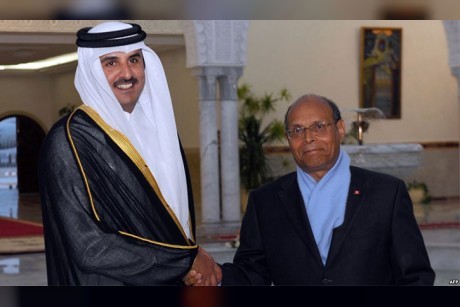FIFA announced that Qatar will host the 2019 and 2020 Club World Cup tournaments. They will be the last two tournaments in their current format before FIFA shelved a plan to expand the 2022 World Cup.
For Qatar, it is a chance to test out stadiums and infrastructure ahead of the 2022 World Cup, the head of Qatar’s World Cup organizing committee told Al Jazeera the Club World Cup would give them a chance to test out plans for fan zones and the sale of alcohol to fans, and learn from the experience ahead of Qatar 2022.
Liverpool are one of the sides that will be heading there this December. They will be joined by Mexican side Monterrey, possibly Tunisian side Esperance, who were named African champions in controversial circumstances last week, Hienghene Sport from New Caledonia.
But using the Club World Cup as a dress rehearsal for Qatar 2022 is just about the only positive of choosing the Gulf state as a host for these matches.
FIFA talks about growing the game and taking it to new regions, which is fair enough when it does actually “grow the game”, but at the same time, it is alienating the fans of the clubs that are playing in these games. The 20,000 empty seats in Baku for the Chelsea’s Europa League final win over Arsenal last month should have been a wakeup call, a clear sign that by careless expansion, choosing venues based on geopolitics or chasing the highest bidder, FIFA could kill the goose that lays the golden egg.
The decision to play the Club World Cup in Qatar shows that FIFA hasn’t learned anything from Baku. These decisions are a huge part of what has made the Club World Cup “unloved”. The tournament’s average attendances in Japan and Morocco were around 30,000. The attendance figures probably won’t be any higher for the upcoming tournaments in Qatar, and if they are, how many of those fans will actually be traveling from Liverpool to watch their team?
Without the passion of supporters who watch their teams every week, is it any wonder why the Club World Cup feels like a bunch of glorified friendly games? If it were played in Madrid or Rio de Janiero then the tournament would create a buzz that would attract TV viewers and sponsors alike. Creating this kind of atmosphere at the tournament will be the real challenge for Qatar’s organizing committee.
Qatar has been using soccer as PR, to present itself in a positive light. At the same time, this had drawn more attention to the darker side of Doha, such as the conditions of migrant workers at the World Cup stadiums in Qatar.



